You can trust Cyclingnews
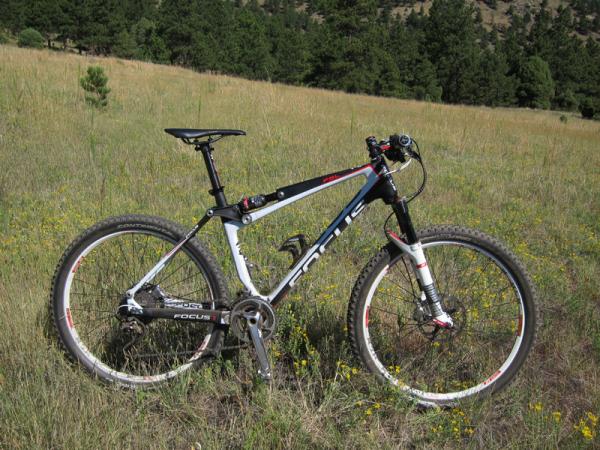
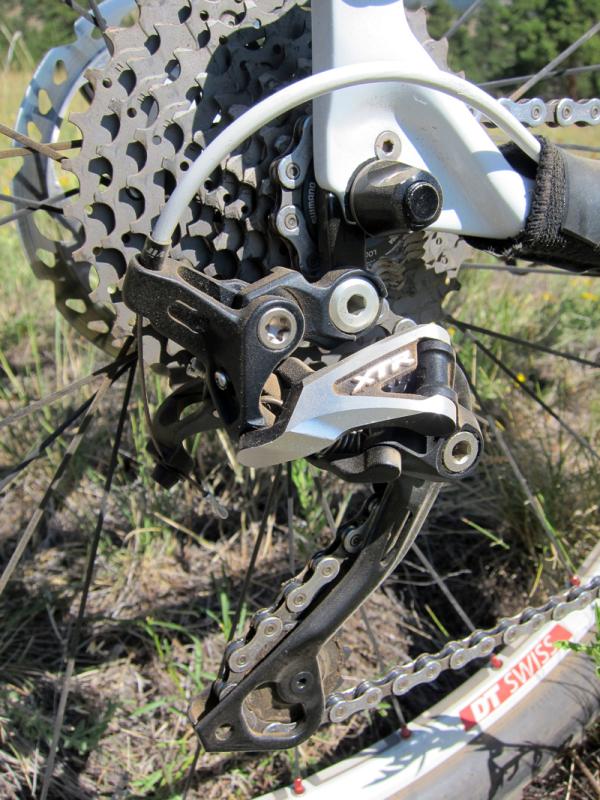
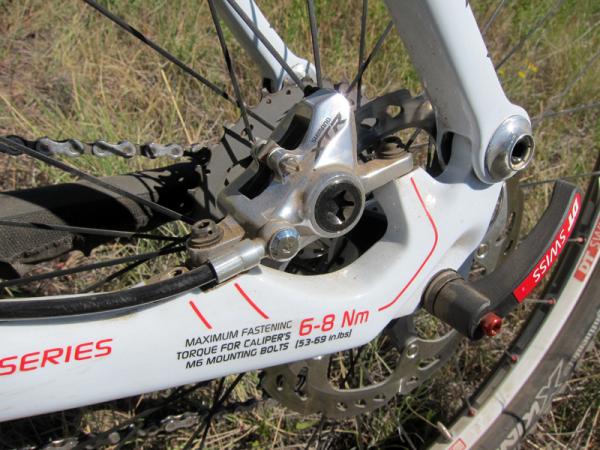
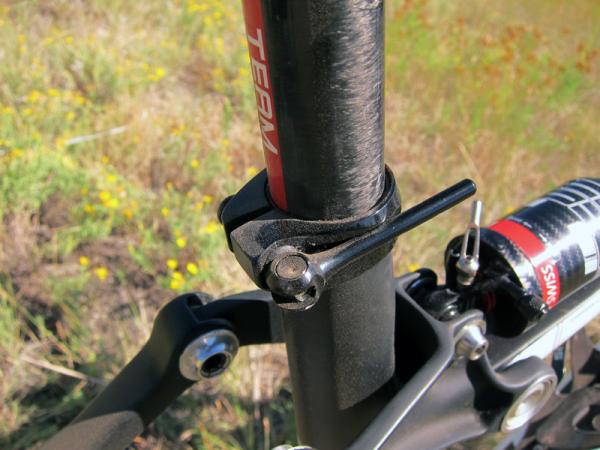
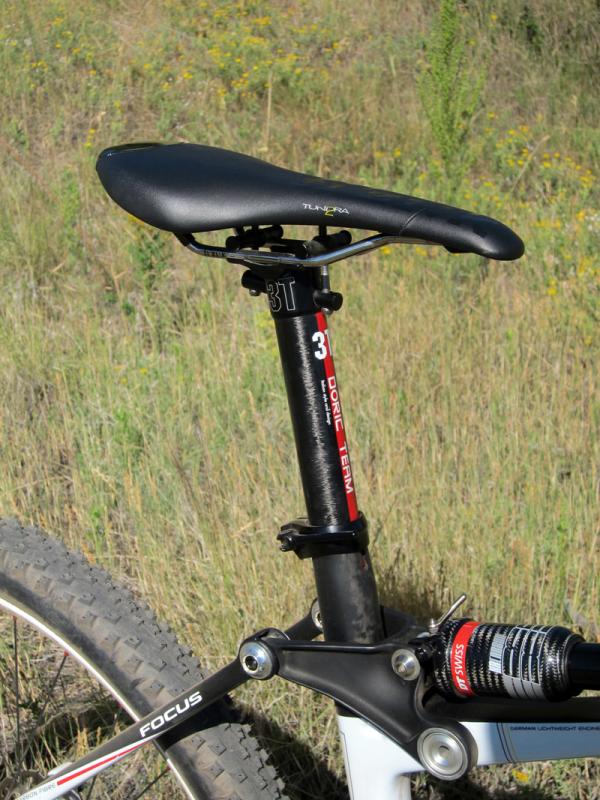
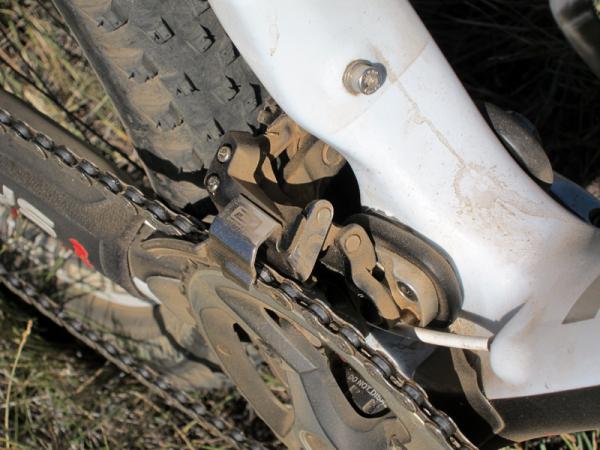
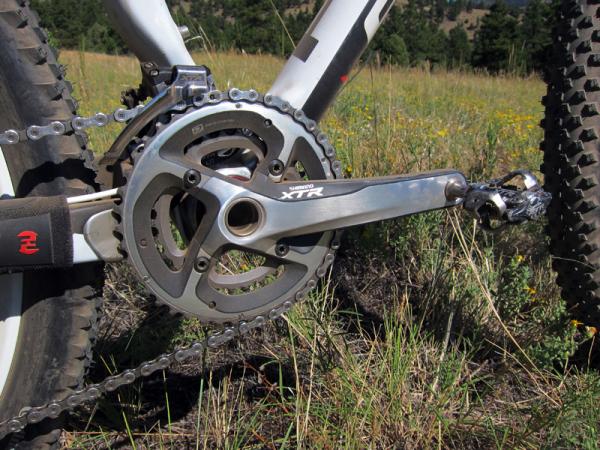
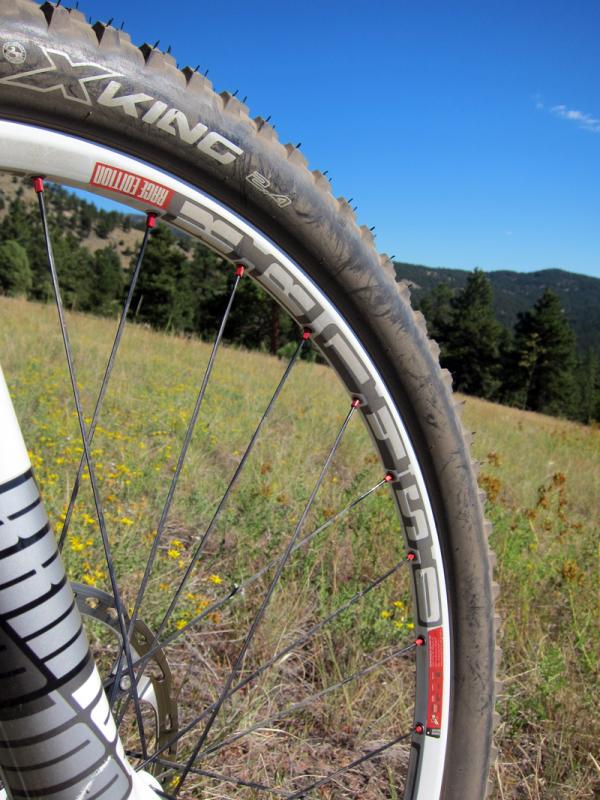
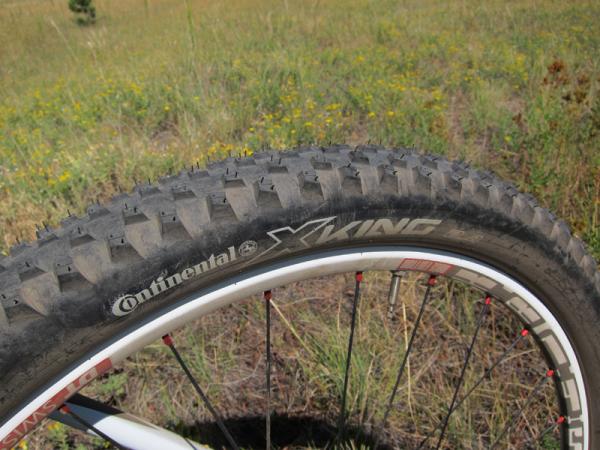
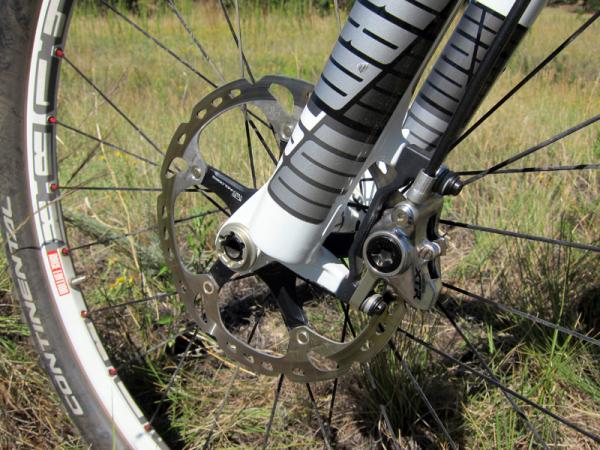
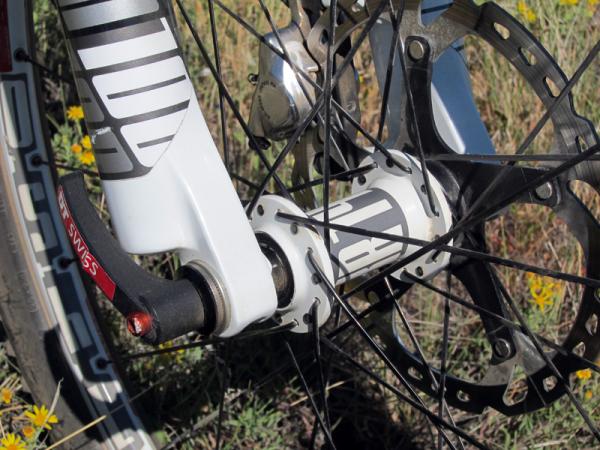
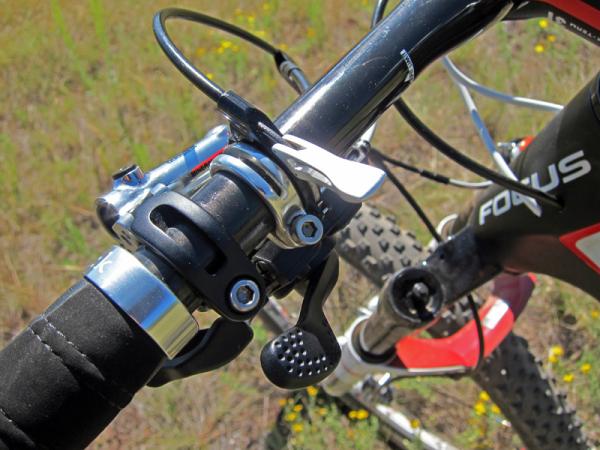
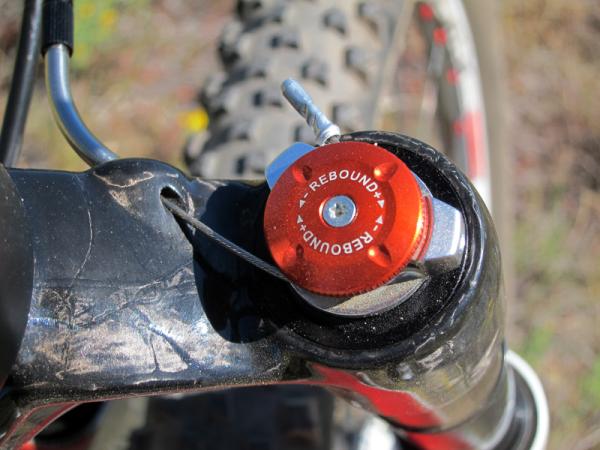
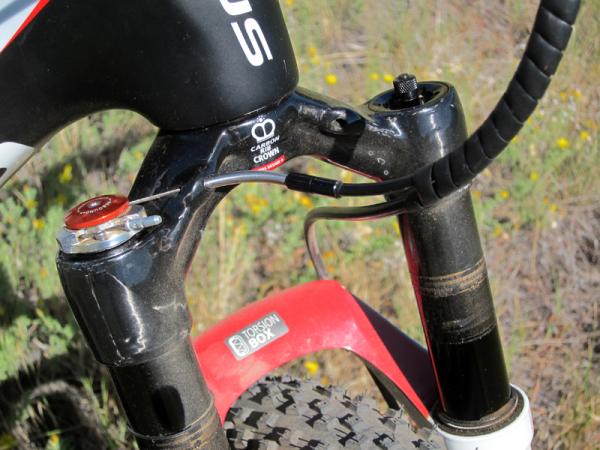
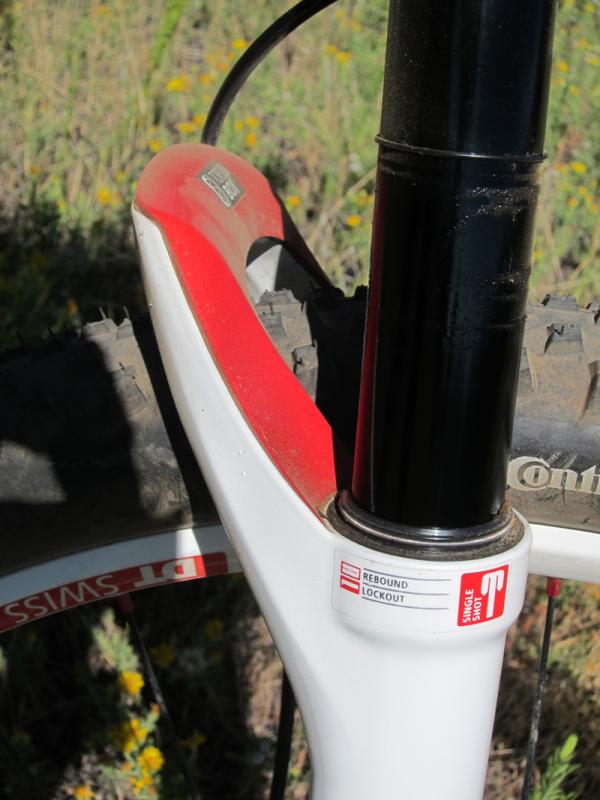
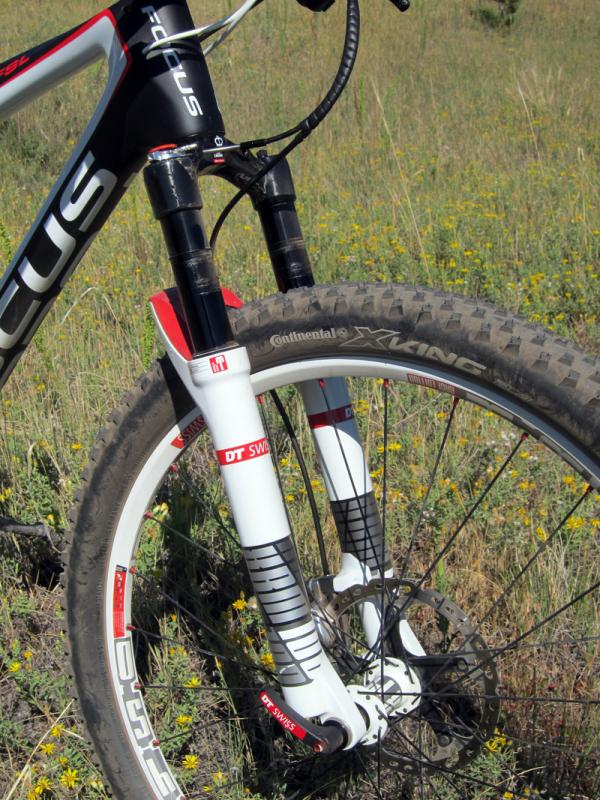
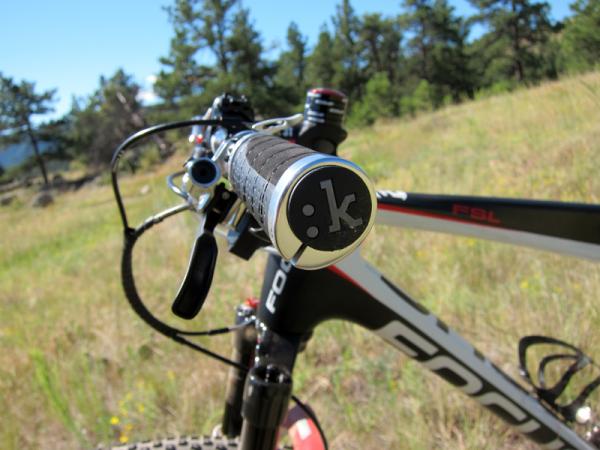
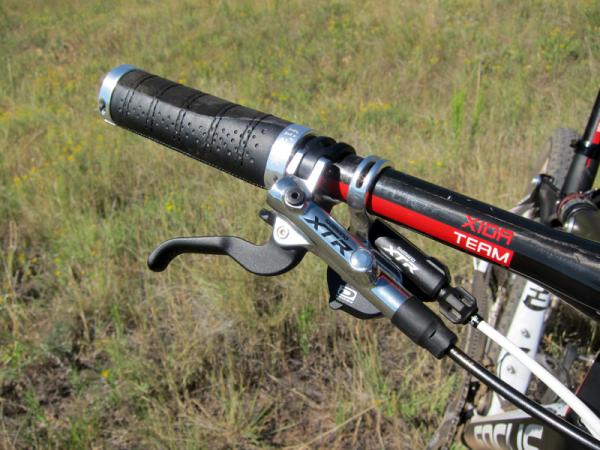
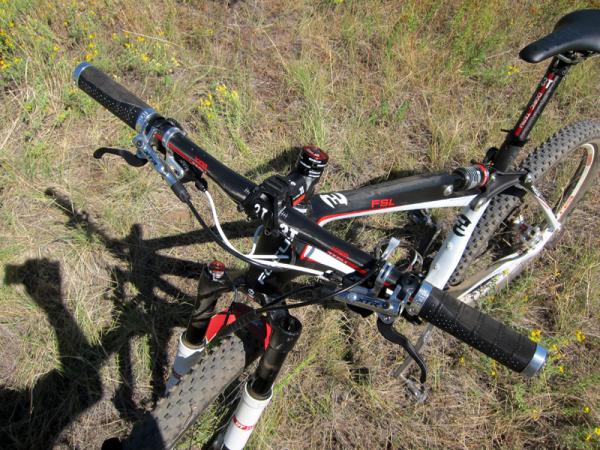
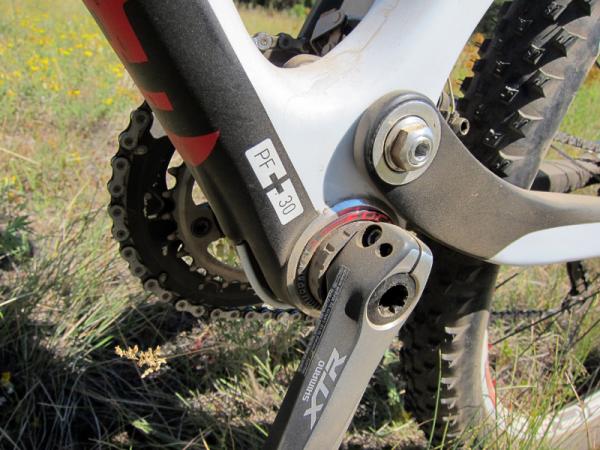
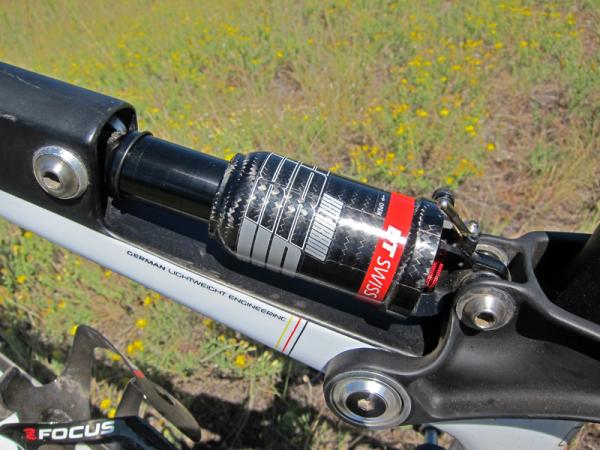
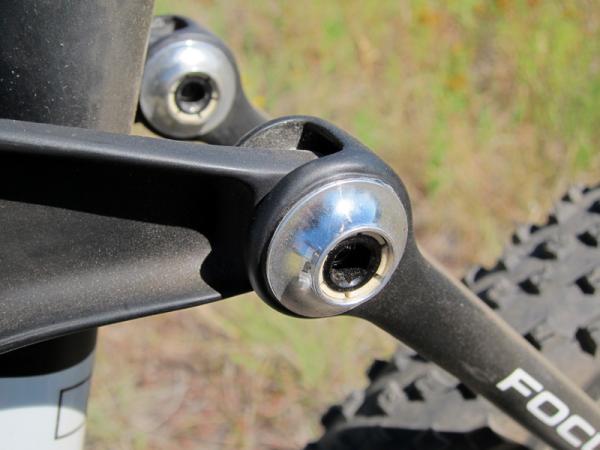
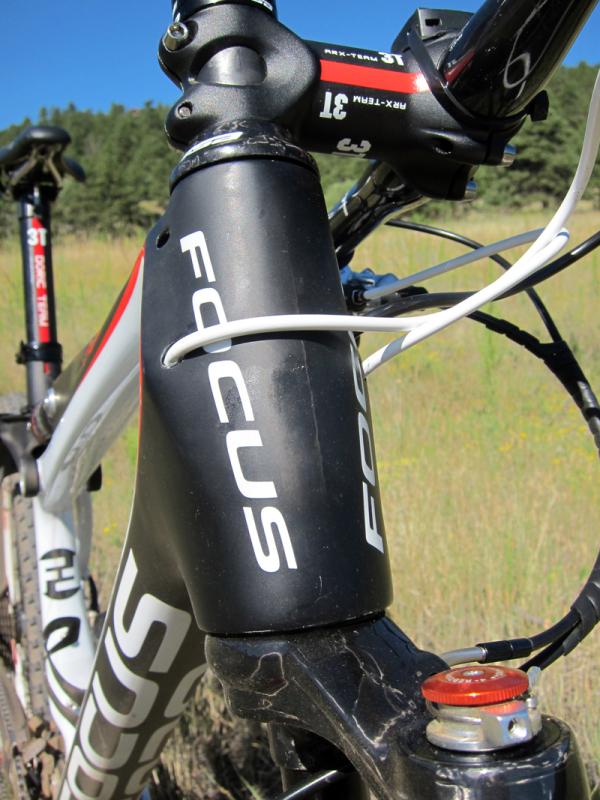
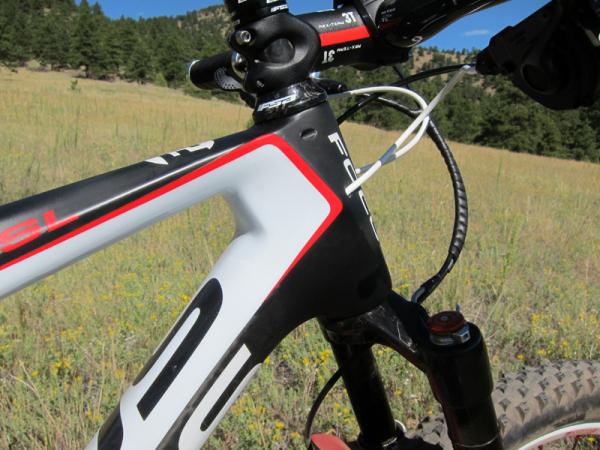
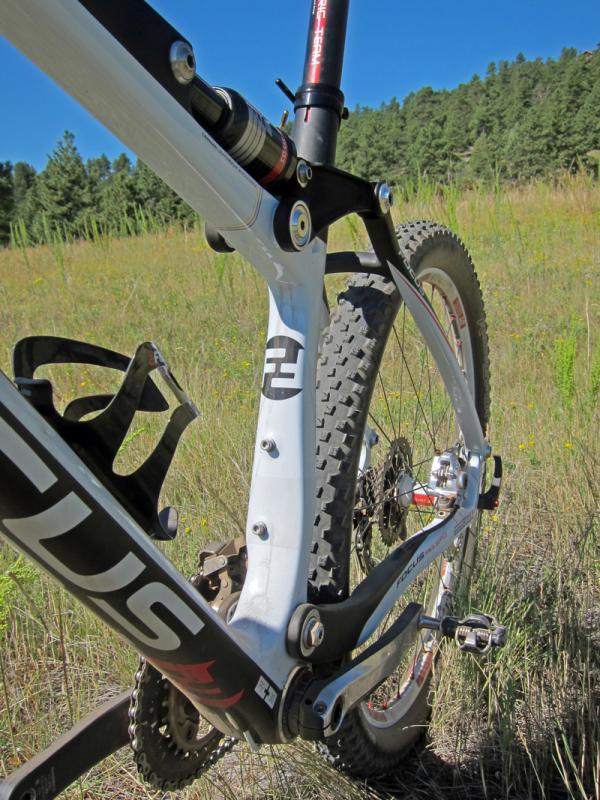
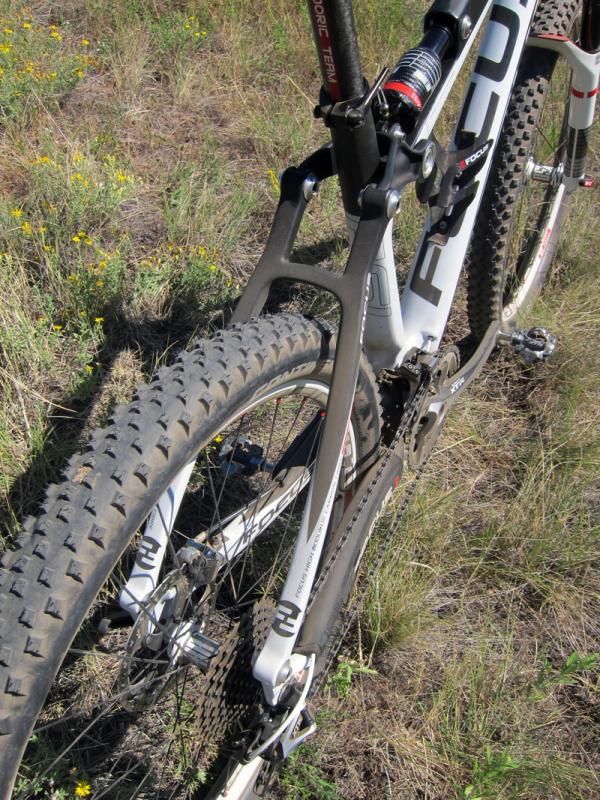
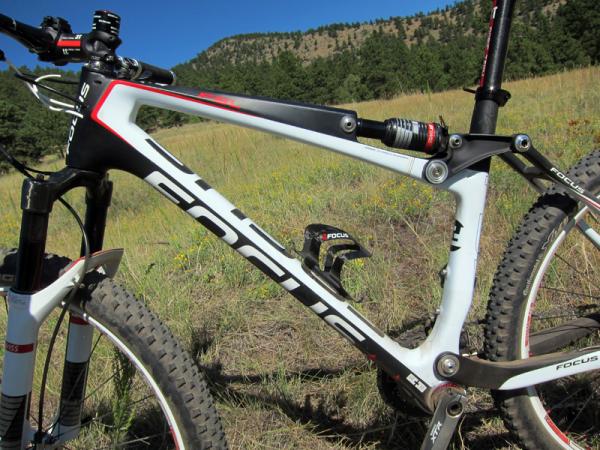
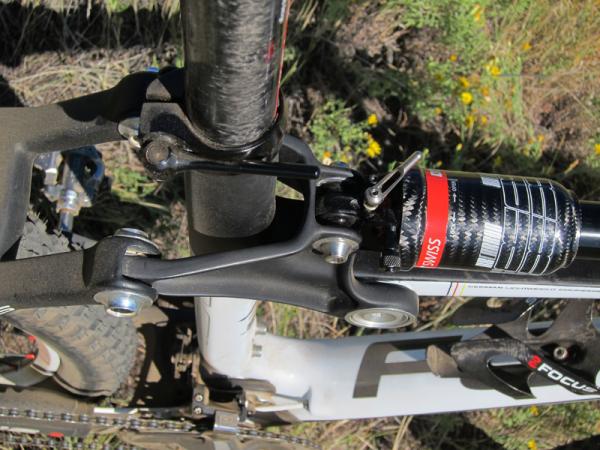
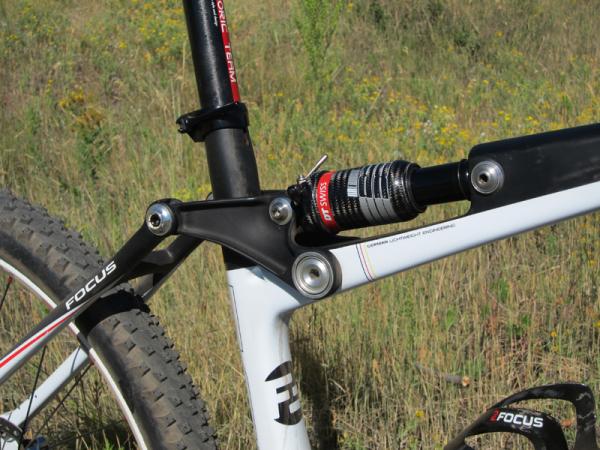
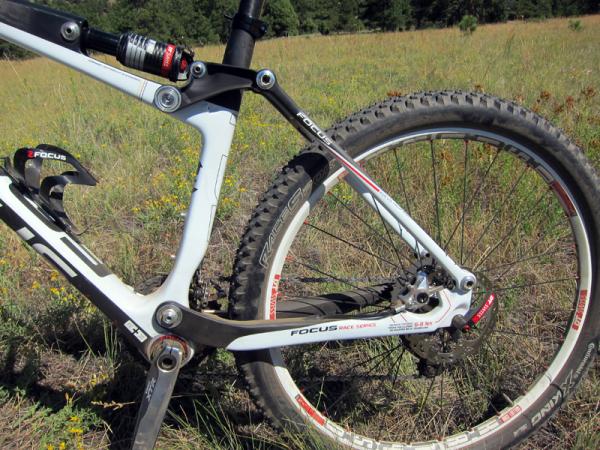
This article originally appeared on BikeRadar
Focus Bicycles' intriguing FSL 2.0 marathon racer offers up excellent pedaling efficiency and a number of bright spots in the spec. But unfortunately, the overall feel says 'throwback', not 'state of the art'. The basic chassis design is sound, though, making the other three FSL models with their more modern suspension components more appealing in our book.
Ride and handling: snappy and nimble but "small bump compliance" isn't in the lexicon
One characteristic the Focus FSL 2.0 definitely possesses is quickness. It's a very efficient pedaler – especially in the inner chainring – and the impressively stiff chassis has lots of 'pop' when making big technical moves on steep, tricky climbs. Motoring along on rolling terrain elicits little, if any, rear suspension monkey motion and generally speaking there's a lot of spring in this bike's step – as if it had just gotten a big raise, recently captured the elusive chupacabra, and more marshmallow rainbows were falling out from the sky than in a Lucky Charms commercial.
Handling is correspondingly eager, too, with a relatively steep 69.5° head tube angle and short 1091mm wheelbase for our medium-sized tester. Needless to say, the 10.3kg (22.71lb, complete, medium, without pedals) doesn't exactly hurt the nimble feel, either, though we did expect it to be a touch lighter given the asking price.
In fact, Focus easily could have gone even lighter with a different component spec but apparent non-negotiables include the 180mm front rotor and fat 2.4in Continental tires, both of which were very welcome bits on marathon-length rides for the extra stopping power and enhanced grip and cushioning – weight well spent if you ask us.
One place there unfortunately isn't much cushion at all, however, is in the disappointing front and rear suspension. There's such a lack of small-bump activity that it not only detracts from rider comfort but also performance. Similarly, overall control on single medium or large impacts is composed and confident but toss a series of obstacles in the FSL 2.0's way and it quickly gets out of sorts.
It almost seems as if DT Swiss's suspension engineers have yet to perfect the concept of a proper negative spring. Chatter harshly transmits through to the hands, legs, and butt and tire tracking noticeably suffers as well – so much so that it was tough to hold a line through bumpy corners during test sessions without fear of getting shot off into the weeds.
Unfortunately, this wasn't an issue with the modest 100mm of front and rear travel or setup. Sag varied between 20-30 percent throughout testing, we regularly achieved full travel on typical terrain, and we've certainly ridden other short-travel bikes with more composed personalities.
We also had issues with the suspension layout itself, though not in terms of function. Locating the shock and rocker arm atop the top tube leaves room in the main triangle for two water bottles, places the manual rear shock lockout in very accessible spot, and makes for easy shouldering for hike-a-bikes but it also places a lot of hardware in between your knees.
The wide rocker arm regularly brushed our legs during test rides – especially when deeper into the travel – and there are lots of sharp bits in that vicinity including the shock valve cap, pivot hardware, and the pointy end of the seatpost quick-release lever. Moreover, the carbon air can on the DT Swiss rear shock gets uncomfortably hot very quickly – enough that we had to consciously remind ourselves not to touch it after a downhill.
Finally, the rear shock lockout is conveniently placed but it's perhaps a little too easy to operate. The spring-loaded lever favors the locked out position so we inadvertently ended up with essentially zero rear suspension movement in the midst of more than one downhill section of trail.
Frame: light yet solid structure with clever internal routing

The Focus FSL 2.0 leaves room for two water bottles inside the main triangle - a rarity on full-suspension machines
Focus builds every main section of the FSL 2.0 frame out of carbon fiber, including the front triangle, chain stays, seat stays, and even the shock linkage. Main features include a tapered head tube, PressFit 30-compatible bottom bracket shell, post mount rear disc tabs, carbon rear dropouts, a swingarm-mounted front derailleur, and thoroughly accommodating internal cable routing that handles not only derailleur and brake lines but also rear shock remote and dropper seatpost housings if so equipped.
The seat tube is also highly asymmetrical, front triangle tubes and the chain stays are notably oversized, and the main pivots rotate on large-diameter axles and sealed cartridge bearings – all of which contribute to the bike's solid feel underfoot. Secondary pivots use a novel angular contact ceramic bushing system that Focus claims are stiffer than conventional radial contact cartridge bearings. Regardless, all of the pivots on our test stayed slop-free and quiet throughout testing.
Metal guards applied to the down tube, chain stay, and even the bottom bracket shell itself are all in place to help protect the frame in the event of a dropped chain or chainsuck.
Actual frame weight for our medium tester was 2.03kg (4.48lb) including the rear shock, seatpost collar, rear derailleur hanger, and water bottle bolts – admirably close to Focus's 1.95kg claim, which includes the rear shock but not the other ancillary bits.
Equipment: hit and miss blend
On paper, the spec sheet of the Focus FSL 2.0 is a home run, including a complete Shimano XTR 2x10 group (with a smart 180mm front rotor spec), excellent DT Swiss XR 1450 wheels, generously sized Continental X-King tires, sexy carbon fiber and forged aluminum cockpit components from 3T, and fi'zi:k contact points.
While some lines items on that list proved simply awesome on the trail, others unfortunately didn't quite garner as much praise.
The XTR components were essentially flawless with characteristically buttery-smooth shifts front and rear, perfectly tactile shift lever action, and some of the best disc brakes on the market with awesome power, incredible modulation, and great feel from the stubby one-finger lever. Our only possible gripe here is with the 30/42T front gearing, which some buyers simply aren't going to be able to handle on tougher climbs. Unfortunately, Shimano's chainring bolt circle patterns will require a wholly different crankset if you want to go any smaller.
Likewise, we had no complaints with the DT Swiss wheelset itself, which was impressively solid-feeling for its weight, held true during testing, and promises excellent long-term durability with the proven star ratchet driver design. Focus doesn't include the tubeless conversion kit stock, though, so buyers wanting to go that way will have to spend some extra money – on top of what is already an expensive bike – for the convenience of going tube-free.
Tire feedback was mostly positive. The generous 2.4in width is fantastic, offering up a smoother ride than smaller casings plus extra traction but without having to sacrifice rolling speed. Grip was good with predictable drift characteristics on most terrain types but loose rocks were a definite Achilles' heel with the knobs being a little too closely spaced in those situations. We also started to notice appreciable wear on the rear shoulder knobs after just the first few rides.
Most of our build kit issues centered on the cockpit and seating components. The carbon fiber 3T XIDA flat bar is a touch narrow at 640mm across (a personal preference thing, we admit) but the stingy 3.5-degree bend is straight out of the mid-90s. Focus makes an effort to modernize things with a relatively short 80mm 3T ARX Team stem but without the benefit of a correspondingly longer top tube, the combination just feels awkward on the trail.
Similarly, the 3T Doric Team seatpost was extremely light on the scale but a little frustrating to live with. Swapping saddles is awkward with the three separate clamp components flopping about and the forward bolt head is tough to access. Buyers thankfully won't have to deal with either of those issues much once their saddle is in an agreeable spot but the bolt length is a lingering issue: they're so long that the saddle shell easily bottoms out on them unless you're using tall carbon rails and the clamp mechanism occupies so much real estate that fore-aft adjustment is severely limited.
Some riders might find the fi'zi:k Tundra 2 saddle to be a tad too firm (we didn't) but we definitely thought the matching grips were. Their eccentric cross-section is comfortable in your hands provided you take the time to orient them correctly but the surface is slippery and they're rock hard.
Sharpening the Focus
If it sounds like we weren't exactly thrilled with the FSL 2.0, you'd be correct. That being said, it's perplexing that Focus would spec the DT Swiss bits only on this model while the other FSLs are shod with smoother runningFox and/or RockShox suspension. Moreover, Focus uses the exact same lightweight frame across the range so riders looking to save some cash aren't penalized with a lesser chassis.
Overall, the FSL holds a lot of promise with its stiff and light frame, clever (if occasionally inconvenient) rear suspension design, and tidy cable routing. That being said, we'd rather take the Deore XT-equipped FSL 4.0 for US$4,600 or the SRAM X0-equipped FSL 3.0 for US$5,200 but all of the options are still rather expensive.
Price: US$8,300
Weight: 10.30kg (22.71lb, complete, medium, without pedals); 2.03kg (4.48lb, medium, with shock, rear derailleur hanger, seatpost collar, and water bottle bolts)
Pros: Excellent pedaling efficiency, wide tires, fantastic brakes
Cons: Only so-so suspension performance, awkward linkage and shock placement, racer-only gearing, frustrating handlebar and seatpost, expensive
Cyclingnews verdict: 2 stars
More information: www.focus-bikes.com
Complete bicycle specifications:
Frame: Focus FSL, 100mm travel
Available sizes: XS, S, M (tested), L, XL
Rear shock: DT Swiss XR Carbon
Fork: Custom DT Swiss XRM 100, 100mm travel, w/ carbon fiber crown, 15mm dropouts
Headset: FSA Orbit integrated, tapered 1 1/8-to-1 1/2in
Stem: 3T ARX-Team
Handlebars: 3T XIDA
Tape/grips: fi'zi:k XC Grips
Front brake: Shimano XTR BR-M985, 180mm rotor
Rear brake: Shimano XTR BR-M985, 160mm rotor
Brake levers: Shimano XTR BL-M985
Front derailleur: Shimano XTR direct mount FD-M985
Rear derailleur: Shimano XTR RD-M980
Shift levers: Shimano XTR SL-M980
Cassette: Shimano XTR CS-M980, 11-36T
Chain: Shimano CN-HG94
Crankset: Shimano XTR FC-M985, 42/30T
Bottom bracket: Shimano SM-BB90-A w/ PressFit 30 adapter
Pedals: n/a
Wheelset: DT Swiss XR-1450 w/ 15mm front thru-axle
Front tire: Continental X-King Racesport, 26x2.4in
Rear tire: Continental X-King Racesport, 26x2.4in
Saddle: fi'zi:k Tundra 2 k:ium
Seat post: 3T Doric Team